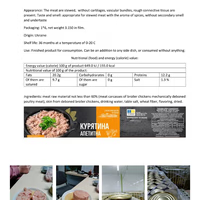
Hungary, located in Central Europe, has a diversified and increasingly modern economy. Over the years, it has transformed from a post-socialist economy to a more market-driven system, with a focus on sectors like automotive manufacturing, pharmaceuticals, IT, and electronics. Hungary is part of the European Union (EU) and thus benefits from the trade agreements and frameworks set by the EU, which has boosted its integration into the global economy. The country’s stable economic environment, strategic location, and well-developed infrastructure make it an attractive trade partner in Europe, especially for countries in the Middle East and West Asia looking to access the broader EU market.
In terms of its financial and commercial system, Hungary maintains a favorable business environment with relatively low corporate taxes and several incentives for foreign direct investment. The banking sector is modern and well-regulated, providing essential financial services to businesses, including access to capital for investment and trade financing. Hungary`s exports are largely centered around high-value products, such as machinery, vehicles, and medical equipment, while its imports include raw materials, fuels, and consumer goods. The nation benefits from trade agreements as an EU member, which opens up opportunities for international partnerships and facilitates easier trade conditions with non-EU countries.
When it comes to trade relations with the Middle East and West Asia, Hungary has increasingly looked to strengthen ties with these regions. Several Middle Eastern countries, particularly the Gulf states, have recognized Hungary as a key gateway to the European market, while Hungary seeks to diversify its trade relations outside of the EU. Hungary exports goods such as machinery, technology, pharmaceuticals, and food products to countries in the Middle East and West Asia, while importing raw materials like oil and chemicals. Bilateral trade agreements and partnerships have been steadily growing, with an increasing emphasis on sectors like energy, construction, and agriculture.
Hungary’s strategic interest in building stronger ties with countries in the Middle East and West Asia is also reflected in its involvement in global trade forums and diplomatic efforts to foster better economic cooperation. This growing economic diplomacy has led to increased foreign investment in Hungary from these regions, particularly in sectors like real estate, logistics, and energy. Furthermore, initiatives aimed at enhancing cultural and economic exchanges, such as joint business councils and trade delegations, have helped in solidifying Hungary`s role as a key economic partner for Middle Eastern and West Asian countries.
-
 Gmk World Trade S.R.O. 1 months ago
Gmk World Trade S.R.O. 1 months ago Hungary
Halal Chicken & Parts & Canned Meats
Hungary
Halal Chicken & Parts & Canned Meats
\`Welcome to halalchickenmeat, where we provide high-quality, certified halal chicken products to our customers, ensuring the highest standards of qua...Details
In 2025, Hungary presents intriguing trade dynamics, particularly for businesses looking to engage with the country"s trade sector. A notable statistic is the downturn in Hungary"s merchandise import value index, which fell to 94. 4 in 2023, below the global average of 101. 1. This suggests a contraction in Hungary"s import activities, contrasting with broader global trends. However, this decline in import value is accompanied by a decrease in import volume, which also dipped to 95. 7, compared to the global average of 104. 5, indicating a reduction in both value and volume.
On the export side, Hungary"s merchandise export unit value index stood at 107. 5 in 2023, above the global average of 95. 0. This higher index suggests that Hungarian exports have maintained a stronger pricing power internationally. However, the export volume index decreased to 98. 6, below the global export volume index of 108. 4, highlighting a potential volume challenge that could be an opportunity for businesses to optimize supply chains and improve market reach. In terms of GDP, Hungary"s performance aligns with global patterns, with industry making up a significant proportion of the GDP, mirroring the global average of about 29.
45%. However, Hungary"s service sector, though slightly lower than the global average, offers avenues for growth, particularly in e-commerce and digital services. The fluctuations in Hungary"s trade indices suggest potential volatility in market conditions, offering strategic entry points for businesses to capitalize on emerging needs. For entrepreneurs and companies aiming to navigate these complexities, creating a business profile on Aritral. com could provide valuable market insights and enhance visibility in Hungary"s trade landscape. Aritral"s AI-driven platform aids in simplifying international trade processes and optimizing market entry strategies, making it an ideal tool for businesses targeting Hungary. Despite these challenges, the Hungarian market"s shifts reflect opportunities in sectors like technology and innovation, where businesses can leverage Hungary"s competitive pricing in exports to establish robust networks across Western Asia. The strategic use of Aritral"s offerings, such as product listing and global sales assistance, can ensure businesses are well-positioned to respond to Hungary"s evolving trade dynamics. "

